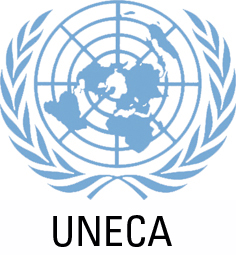Focal point
Location
P.O. Box 3001
Addis Ababa, Ethiopia
Established by the Economic and Social Council (ECOSOC) of the United Nations (UN) in 1958 as one of the UN's five regional commissions, ECA's mandate is to promote the economic and social development of its member States, foster intra-regional integration, and promote international cooperation for Africa's development.
Made up of 54 member States, and playing a dual role as a regional arm of the UN and as a key component of the African institutional landscape, ECA is well positioned to make unique contributions to address the Continent’s development challenges.
ECA’s thematic areas of focus are as follows:
- Macroeconomic Policy
- Regional Integration and Trade
- Social Development
- Natural Resources
- Innovation and Technology
- Gender
- Governance
Members:
Resources
Displaying 586 - 590 of 872Création d'organismes permanents d'enquêtes sur le terrain
La création d'organismes permanents d'enquêtes sur le terrain dans le cadre des services statistiques africains est à l'étude depuis de nombreuses années et dans certains pays ces organismes existent déjà. Ils se justifient par la nécessite de recueillir des informations relativement exactes sur les secteurs des ménages et des entreprises privées, qu'il est impossible d'obtenir de sources centralistes d'informations dans les pays en voie de développement.
The transformation of the land tenure system, land appropriation and formation of the ruling class in the mauri country (Niger)
The difference in kind between the pre-colonial and the postcolonial relations of production can he noticed through the gradual dissolution of relations based on a personal tieless gift-giving based on the market economy. The liberation of the labor forces this engendered and of channeled into a new system of constraint, led to the beginning of a private appropriation of land.
Highways and foundations in black cotton soils
Black cotton soils are one of those clays with a high content of montmorillenite. These have a very high plasticity leading to high rates of expansion on wetting followed by shrinkage and considerable cracking on drying. The black cotton soils of Ethiopia have liquid limits ranging between 80 and 120 and plasticity indices of 40 to 80 (see figure l). The activity of these clays is between 0.8 and 1.5. Thus by the Skempton classification the activity of these clays is considerable and, as one would expect, swelling potential is high.
Highways and foundations in black cotton soils
Black cotton soils are one of those clays with a high content of montmorillenite. These have a very high plasticity leading to high rates of expansion on wetting followed by shrinkage and considerable cracking on drying. The black cotton soils of Ethiopia have liquid limits ranging between 80 and 120 and plasticity indices of 40 to 80 (see figure l). The activity of these clays is between 0.8 and 1.5. Thus by the Skempton classification the activity of these clays is considerable and, as one would expect, swelling potential is high.
History of the cadastre in Tunisia
The origins of the cadastre in Tunisia go back to the Roman occupation. The vestiges of a Roman cadastral system were first brought to light through examination of plans and topographical maps established from ground surveys; from this examination it was possible to determine the characteristics of both the orientation of the lines arid the dimensions of the grid.


